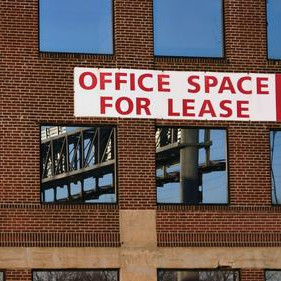Real Estate - Leasing Office Space

By former Principal Diane Fox
If you are a tenant who will be leasing office space for your business, here are a few tips you need to know.
The Broker. Hire a good commercial broker familiar with office leases. Your broker will know all the ins and outs of leasing office space, is familiar with office rents in your location, and will know if you are getting a good deal or at least a deal which is fair and reasonable. A good commercial broker is worth his (or her) weight in gold. You won’t be sorry.
The Lawyer. Once you have reached a deal with the landlord, hire an attorney experienced in office leases to read the lease and tell you what can and cannot be negotiated. The landlord’s form of lease will be chock full of what he calls “standard” clauses, but some of the “standard” clauses can do you some serious damage if you don’t know what to look for. The “small print” in a lease can kill you.
Here are a few things the lawyer should look out for:
Operating Expenses. In addition to base rent, you will pay a proportionate share of the costs for operating the building. It is important to determine how your proportionate is calculated and what costs are included in the definition of operating expenses.
Renewal Terms. If you are getting an option to extend the lease term, but the lease says the rent for the renewal term will be agreed upon, your option is no option at all.
Rent Increases. Does the rent increase every year? If so, what method is used to determine the rent increase(s)?
Tenant Allowances. If the landlord is giving you a monetary contribution toward your leasehold improvements, it’s important to know whether that will be paid up front by you with reimbursement from the landlord later or whether the landlord will pay as the work progresses.
Alterations. If you are permitted to make alterations to the space, you may be required to rip out all your alterations at the end of the lease and restore the space to the same condition it was when you first leased it. Be careful about this provision.
Subleasing and assignment. This could be very important for a tenant. Your attorney will know what’s fair in terms of a reasonable subleasing and assignment provision.
Insurance. Don’t skip over the insurance clauses in a lease. Always have them reviewed by your insurance broker, who will know what the insurance clauses really mean.
Fire, Flood or Other Casualty. What happens if the building has a fire, flood or other casualty? Can you get out of the lease? Suppose it takes too long for the landlord to repair the damage?
Grace Periods. Does the lease have a grace period on rent payments or for other tenant obligations? Do you get written notice of such defaults?
SNDA. An “SNDA” is a Subordination and Non-Disturbance Agreement. Does the lease provide for one? Do you care? Without an SNDA, if the landlord defaults on its mortgage and the landlord’s lender forecloses, the landlord’s lender could terminate your lease.
Holding Over. What happens if you don’t vacate the space at the end of the lease? Most leases will contain a provision pursuant to which the rent doubles if the premises are not vacated at the end of the lease term. This provision can often be negotiated.
Relocation Clauses/Expansion Space. Some leases allow the landlord to move you out of your space and put you in some other space in the building. If you think your business might expand, you may want to consider requesting a first right of refusal to take more space.
Personal Guarantees. A landlord will most likely want the principals of your business to personally guarantee the lease, and, unless you have been in business for a long time and have a verifiable record of not having been in default in the past, eliminating a personal guaranty altogether is difficult. Sometimes, however, the duration of the guaranty can be limited either in duration or to a specific dollar amount.
The foregoing are only some of the issues that a tenant’s attorney can attempt to negotiate. As you can see, if the attorney is successful, you will have a less onerous document governing your tenancy than might be the case without an attorney. The legal fees expended in such a review, including revisions to the proposed lease, will be money well spent.
